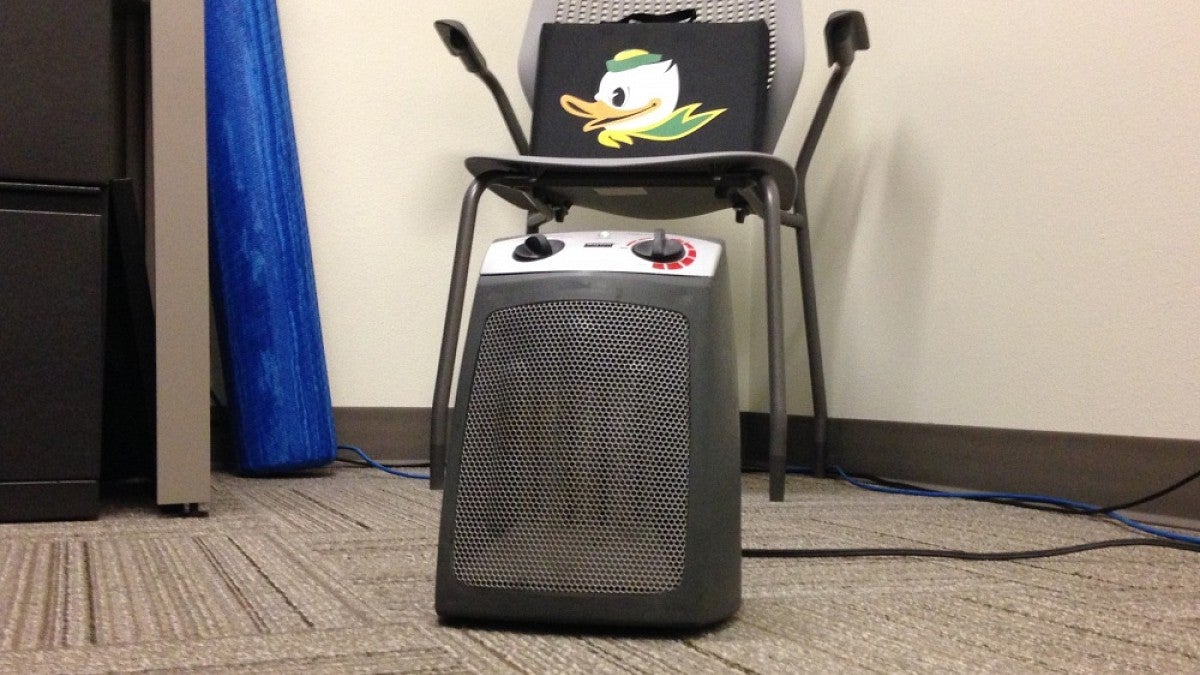Many UO employees turn to personal space heaters to boost their workspace comfort in winter, but it's a choice that can leave energy and safety standards out in the cold.
The UO’s dozens of buildings cover a staggering range of ages and construction types. That breadth might be as noticeable in heating and cooling as it is in exteriors and surface finishes.
As anyone who’s worked in more than one building on campus is aware, heating and cooling is uneven at best. Some buildings, because of age and construction, have no heating and cooling at all, relying on windows — open or closed — and Western Oregon’s generally mild climate to keep things comfortable year-round.
“Nobody wants an uncomfortable working environment,” UO Environmental Health and Safety Director Steve Stuckmeyer said. “But improperly used space heaters create risks that run from irritating to fatal, and people really need to take precautions.”
Before plugging in and using a heater, employees should tell an office manager about uncomfortable conditions, to get help from Campus Planning and Facilities Management. Or contact campus planning’s customer service directly at 541-346-2319. The department will see if something can be done within the building heating and cooling system to improve an office’s comfort level.
If campus planning checks it out and nothing can be done within the system, follow the UO guidelines.
Heaters must meet standards and have certain safety features like tip-over protection, be placed on a level floor at least three feet from any combustibles and out of any walking pathways, and not be plugged into extension cords. The UO fire marshal’s office, at 541-346-8259, can schedule an inspection to make sure a heater and its setup are safe.
Dangers and problems from office heater misuse include:
- Fire: heat exposure to combustibles such as clothing, furnishings or paper; damaged electrical cords; heaters without adequate safety features; overloaded circuits failing to trip a breaker.
- Tripping on cords or heater units.
- Electrical system disruption: tripping breakers, which can shut off power unexpectedly and cause data loss and equipment damage, or even lead to fires.
- Heating and cooling system inefficiency: Increasing heat in some areas may cause larger systems to shut off or even to turn on cooling, causing a waste of energy and money and potentially causing discomfort to those who rely on the heating and cooling systems for comfort instead of personalized systems.


